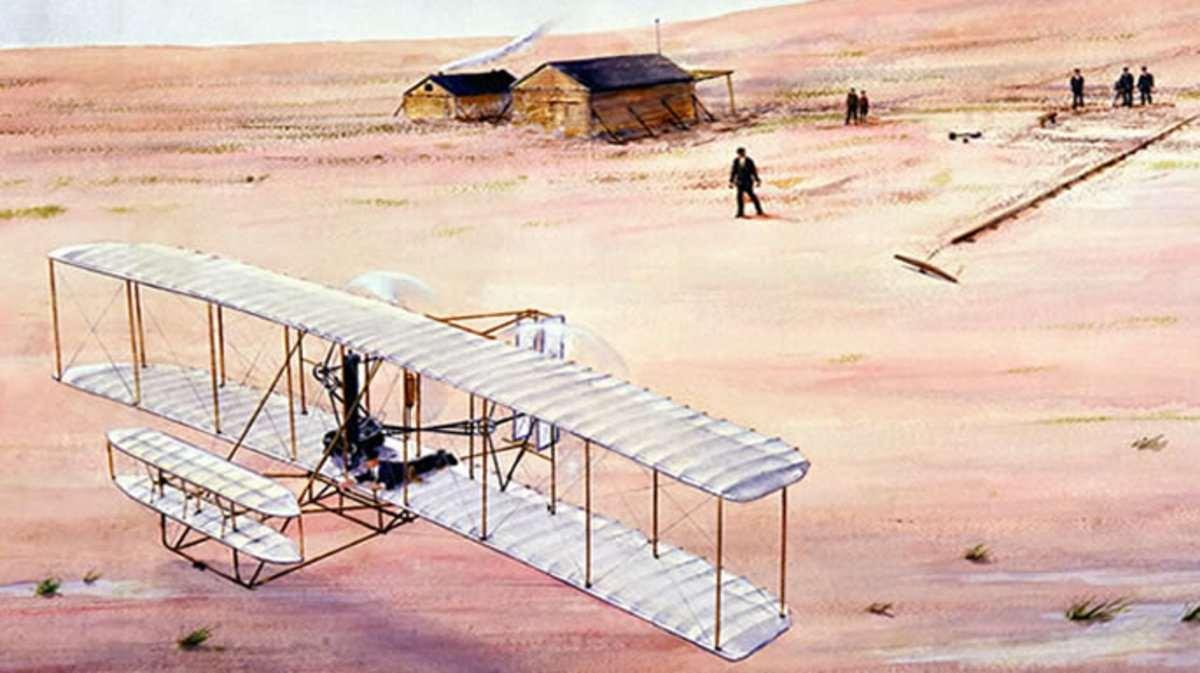By Bill Kelly, CEO, CAIA Association
One hundred and fifteen years ago today two Wrights tried to make it right when it came time to ponder the prospect of flying the friendly skies. On that day in an open field in a place called Kill Devil Hills, the first recorded airplane flight took off and safely landed about 12 seconds later, covering about 120 feet just above the dusty field. It was a humble but auspicious beginning for a mode of travel that we now almost take for granted, with the longest of long-haul flights lasting over 17 hours and spanning 15,000 kilometers. Two Wrights certainly and ultimately made it right in the skies.
What does this have to do with investing you ask? Nothing and everything. Long-term charts of most things in life show discernable patterns that appear both obvious and predictable, but when you zoom in it can get scary and less predictable very quickly, particularly as behavioral biases take hold. Last week was a prime example if you looked at the more micro (weekly) mutual fund flows in the US, courtesy of Lipper. This data showed some interesting and record setting numbers that date back over the 25+ years they have been in the fund flow tracking business. Equity mutual funds showed record-setting outflows of $46 billion of assets in the week ended December 13, and the calm, low-yielding and (mostly) riskless money market funds also set a new recorded high for inflows of $81 billion. The current macro shadows are menacing for sure, but a full-on retreat to the safety of the hanger is not always the best answer, especially when you don’t have a game plan to get back on your own investment runway or retirement glidepath.
Almost on cue, CAIA’s Q2 2018 edition of the Alternative Investment Analyst Review had a contributed piece entitled Endgame. It turns out that the title could be potentially misleading in that these authors were writing about an endgame focused on indicators for the end of one market cycle and the beginning of the next. The asset allocation thought process was formulated around rotations in and out of risk assets and accessing uncorrelated risk premia in light of the signals coming from their four-phased Market Cycle Indicator. Not surprisingly, nowhere in this model will you find a signal to cash out your assets and take a seat on the end of the bench; apparently, the vast majority of retail investors did not get the memo.
The last record-setting outflow for equity funds happened circa February of this year when volatility awoke from a central banker-induced coma. That was soon to be followed by new record equity inflows only a few short weeks later, and now here we are again holding the outflow record in December. Imagine where we would be if Orville and Wilbur, and the industry they spawned, took such a volatile approach to aeronautics?
Volatile markets are a given and we are entering a phase where we should expect to see more of them. Leaving the field is never going to be a good long-term strategy and the smartest investors look at this volatility as both an asset and a more fertile ground in the hunt for alpha.
Six years after the Wright’s took that first flight, brother Orville was at the controls of a plane that went down, and the industry had its first airplane crash fatality; fortunately for Orville it was his passenger who died. Resolve to stay in the aviation game has given us the industry that we know today (although one would expect that even the entrepreneurial Wright brothers would be appalled at those baggage fees!). Find your inner-Wright and avoid the wrongs as we move toward a new phase in the capital markets.
Seek diversification, education and know your risk tolerance. Investing is for the long term.
Bill Kelly is the CEO of CAIA Association and a frequent contributor to Portfolio for the Future. Follow Bill on LinkedIn and Twitter.




